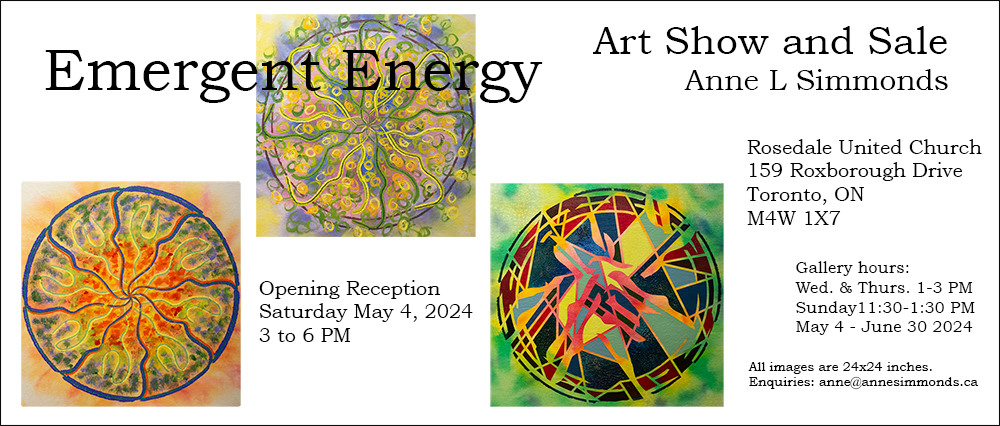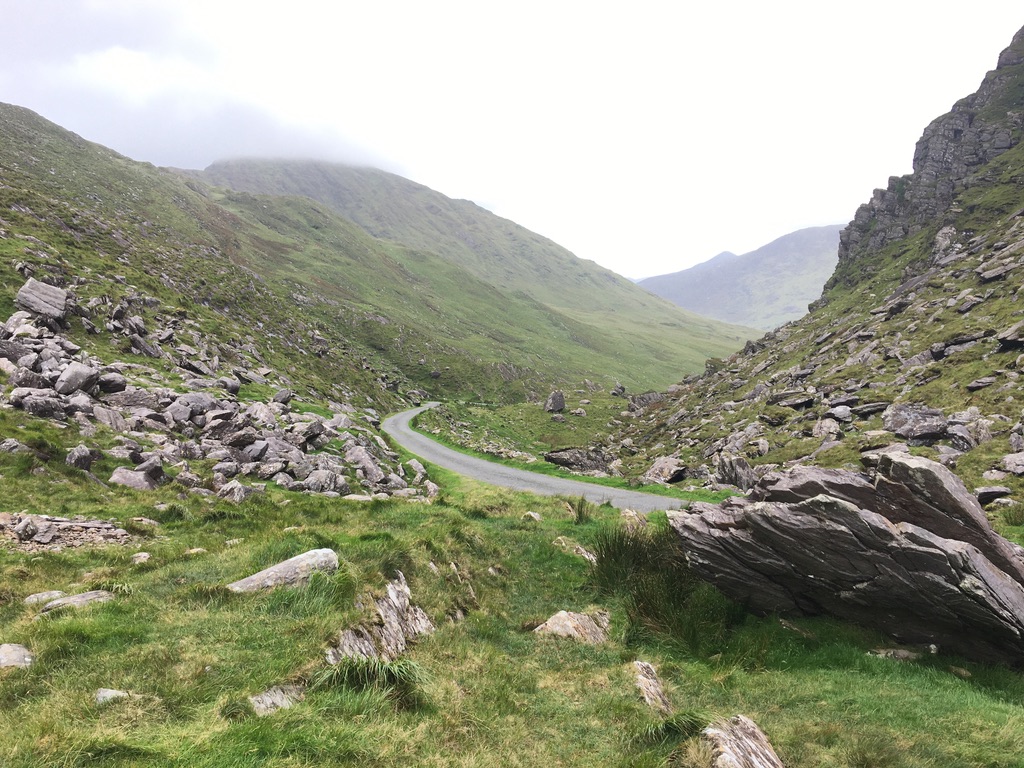 A sermon preached at Rosedale United Church, Toronto.
A sermon preached at Rosedale United Church, Toronto.
December 1, 2024
Rev. Dr. Anne Simmonds
Why did I ever start this? If you watch “Call the Midwife”, you will know that these words form the visual backdrop as the voice of Vanessa Redgrave introduces each episode. On a Christmas special, she says: “All doors are opened at Christmas – All desires are made known. Children list them in their letters, those older just make lists. There is always a goal to be reached, a gift to be given, something to seek out or pursue.” What are you seeking out or pursuing this Advent season?
Call the Midwife is one drama that consistently brings me to tears. Taking place in the east end of London in the late 1950’s and onward, each episode follows two mothers who give birth, mostly in their homes without any anesthetic. The babies are delivered by excellent mid-wives. My tears emerge at the sight of precious new life and the emotions that pour out of the parents, at the sight of this completely helpless new human life. A young patient who was dying of Cystic Fibrosis at the age of 21 introduced me to this Buddhist saying: When we are born, we cry and the world rejoices; when we die, the world cries and we rejoice.
There are two central stories in the Christian faith. One is of birth – the other of death. Two most important events in all our lives.
As we go deeper into the darkest time of the year, we are asked to celebrate new life, and when we emerge into longer days of spring we are faced with a story of death, which ultimately leads to new life.
My first professional position at the young age of 22 was as a Victorian Order nurse in North Toronto. One weekend on call for the whole north part of the city, I was called to a home birth on Eglinton Avenue. At the time, midwives were not licensed to practice in Canada, and there was only one doctor in all of Toronto who would do home deliveries. I arrived before the doctor. I had watched one birth from a distance during my nursing training, and this is a home with none of the supplies or backup of a hospital. Truly, my stomach was in my mouth for the 40 minutes of hard labour before the doctor arrived, minutes before the birth.
Maybe this is why I enjoy “Call the Midwife.” The nurses are completely competent and in charge. It is a reminder that we have centuries of women to be grateful for; women who have been with other women and trained others to do the important work of bringing every single life into the world. As an aside, another reason I like the show is that it shows the religious sisters in a positive light – something we don’t often see in the media.
One aspect of the “Christmas story” that I want to highlight from today’s first reading are the words of the Angel Gabriel to Mary: “The Holy Spirit will come upon you, and the power of the most high will overshadow you; therefore, the child to be born will be holy and will be called child of God.” Conservative theology understands this literally. Mary’s pregnancy conceived without a human male. Having been raised in this sort of belief, I left the church in my 20’s because of the difficulty believing either of the two central stories of birth and death literally. I have recounted before how my theological studies were liberating, as I realized that a whole stream of modern theology understands the Bible in a very different way.
Understanding biblical criticism and recognizing the presence and importance of “myth”, has allowed me to stay within the fold of Christianity. Early in my theological studies I was introduced to Jungian psychology and the importance of ‘myth’ by Marian Woodman and the writings of Joseph Campbell. Both encouraged an understanding of this formative birth story through the lens of mythology.
In our modern vocabulary, the word myth has come to mean something that is not true. Of course, in our current climate many untruths are perpetuated on and off the internet. But the actual meaning of Myth is something that is truer than true – true for all time. Let us look at this story through that lens – true for us now and for all time.
Through the lens of mythology, the story of the virgin birth is relevant to each of us. The ‘begetter’ of this new life is the Spirit. Symbolically the conception and birth are about spiritual transformation. Mary “pondered” these things “in her heart.” She did not want to say “yes” initially to the request to birth “the Christ”. Echoes of “why did I start this?”
What does it mean for me, for you, to birth the Holy in our time and place? Many of us cringe at the world Holy – that is not us! – we are mortal, ordinary, flawed even. However, maybe it is a misunderstanding of the word Holy. Maybe part of our problem is that we have equated Jesus and the other members of the Trinity with “holy” – something far removed from our ordinary imperfect selves. Perhaps our problem is with our understanding of the word “holy.”
The nineteenth-century Scottish theologian George Macleod equated ‘holiness’ with ‘healthiness’ — healthy relationship with the earth, each other, among communities, and among nations. And I would add a healthy relationship with ourselves. To engage with the holy is to pursue health in our lives, in our relationships and in the world. The author John Philip Newell puts it like this: “We are not called to seek liberation from the world, but a liberation of the world.”
Yet, even with this understanding we may feel intimidated by the word Holy and say – no not me – as did Mary initially. What if we were to think of that Divine spark in each of us as being a prompt to act upon what is in us to do – to contribute? In my own case, I look back and see how very early in life I assumed the role of caregiver – what I went on to do professionally as nurse, chaplain, and clergy.
Can Mary’s yes be my “yes”? Can Mary’s yes be your “yes. ”For that is the invitation of the ancient story. And let me suggest this is not a yes for all time but the answer to this question re-shapes itself as we move through our life stages.
Mary is US – the spirit has already birthed something unique into the world through you and wants to continue – otherwise, why are we here? What if we valued ourselves and everyone else on the planet as someone who has something unique to offer to the world? I do not find this easy. I find it hard to see the value added of those who would tear down democracy; or those we pass living on the street crowding our parks with tents. And that is only the beginning – who else do I view through this critical eye?
In the second part of the story, Mary visits Elizabeth, her cousin, to share her big news. When Elizabeth, also pregnant, hears Mary’s greeting, the child ‘leapt in her womb’ – and when Mary’s hears Elizabeth’s greeting, the child ‘leapt in her womb’ as well.
From a theological perspective, this meeting is not merely a family visit; it symbolizes the fulfillment of God’s promises and the shared joy of two women deeply rooted in the Hebrew tradition. Mary’s action reflects her obedience to the role assigned to her by the angel.
Can we trust the mystery which longs to bring new life into the world through each of our unique imperfect selves? It has long been said: the only hands and feet the Divine has on earth are yours and mine.
The story also points to the vital role of community support. In our story, Mary is an unmarried pregnant teenager, essentially a migrant who ends up in Bethlehem of Judea.
How do we experience the joy of spiritual connection? Firstly, all true connection to my mind is spiritual, even if we do not call it that. You know it also – that moment of connection with another that is honest, authentic, real – no pretense. Like those moments in Call the Midwife with the baby’s first cry. Everyone has Joy written on their face. Such connection can take place anywhere, anytime, also in moments of sorrow. On writer says it this way: When you open up about your hurt and sorrow, I feel grateful that you’ve turned to me for support. It’s as though I am meeting you in the most sacred chamber of your heart. Who in your life meets you in the most sacred chamber of your Heart? This is also where I believe we meet the Divine.
When we have the confidence to be open and vulnerable, we create space for meaningful connections by being present, attentive, and willing to listen. Like the bond between Mary and Elizabeth, our interactions with others can bring comfort, insight, and a deep sense of shared understanding.
About a month and a half ago, I had a health scare. It took me by complete surprise and brought up feelings of “not good enough”; fear and fragility. It threw me quite off balance emotionally and spiritually. Initially I did not want to tell anyone. Illogically, I felt shame as I have worked hard over the years to take care of my health. Those of you who know me well will know I can be obsessive about diet, exercise, even spiritual practices. I gradually started to tell my friends what had happened. They listened and surrounded me with care and love – I felt it in their quality of listening and speaking. As days then weeks passed, one of those friends kept checking in as she must have sensed I was not OK emotionally. I was and am profoundly grateful that the spirit in her knew what the spirit in me needed in those days and weeks. It touched me deeply.
Here is the invitation: Reach out to others with love and encouragement from the light that is already within you. Let your light spread warmth and hope in our complex world. Take time to notice the energy that wants to come into the world through you each and every day. Encourage others to bring their truth into the world. And don’t be afraid to let someone you trust into the most sacred chamber of your heart
What I am trying to say is said ever so more eloquently by 13th C Mystic Meister Eckhart
He writes:
What good is it to me
if this eternal birth of the divine child
takes place unceasingly
but does not take place
within myself?
And,
what good is it to me
If Mary is full of grace
And if I am not also full of grace?
What good is it to me
for the Creator to give birth to a child
If I do not also give birth
In my time
and my culture?
This, then,
is the fullness of time?
When the Child of God is begotten
…in us.
This, then,
is the fullness of time?
When the Child of God is begotten
…in me
In you
In us


 My mother leaned into me as we sat together, for what would be the last time, on the edge of her bed.
My mother leaned into me as we sat together, for what would be the last time, on the edge of her bed.